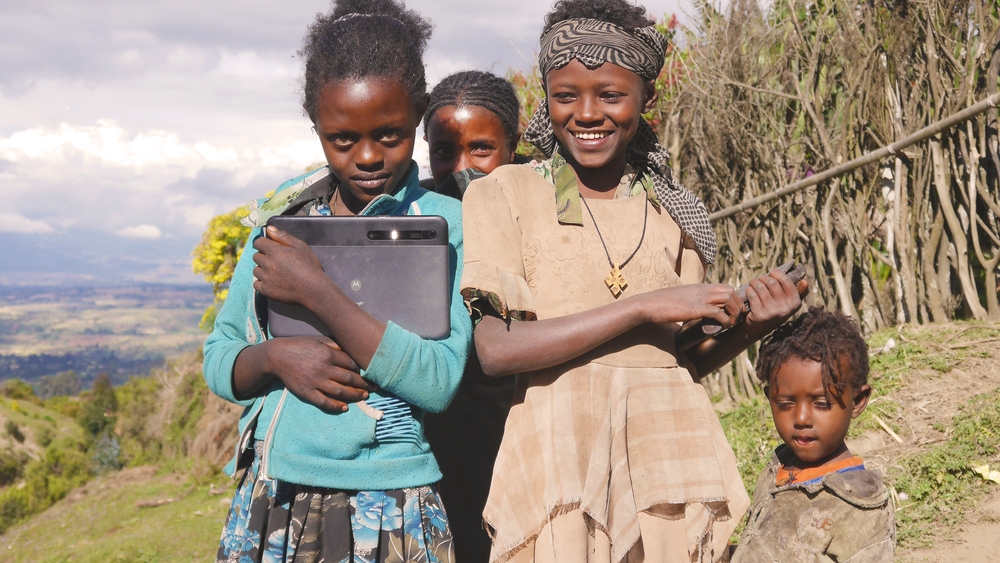The key to sustainable development lies in technology and digitalization

The world is celebrating ‘United Nations Day’, the anniversary of the UN, on the 24th of October. This year, the anniversary falls in the middle of Belgium’s Digital Week. So, it is no coincidence that scientists, entrepreneurs and policymakers from around the world will meet in Brussels in the next few days to examine the significantly underestimated link between digitalization, technology and sustainable development.
Whether we are talking about the 17 sustainable development goals (SDGs) or the climate goals, the only way we can achieve these is by opting for radical technological innovation. This comes not only from the Googles and Tesla's of this world, but also - and perhaps particularly - from local entrepreneurs and creative talent.
In collaboration with four other research institutes from Asia and Africa, VITO, the Flemish Institute of Technology Research, is organizing the first edition of G-STIC (Global Science, Technology and Innovation Conference). The focal point is the role that technology must play in the achievement of sustainable development goals. From eradicating poverty and hunger to gender equality to clean water and sustainable energy: the 17 SDGs - Sustainable Development Goals - are extraordinarily ambitious. However, one thing is clear: we will not achieve these goals through business as usual. The SDGs require radical technological innovation.
To achieve maximum impact, we must accelerate and scale technological solutions. At G-STIC, there will be considerable attention to integrated solutions that simultaneously address several SDGs. For example, in India, VITO has launched a large-scale project on processing waste that massively lands in rivers, in a single blow purifying the water to make it potable. Two problems that are tremendously expensive; one solution that generates money. And there is still a great deal of profit to be realised: in integrated, existing, simple solutions that are cleverly combined to solve a multitude of problems.
It is a popular, but totally unjustified misconception that these technological solutions will all come from the West. The West that jumps in in and solves the problems of the rest of the world… Fortunately, it has been proven that it does not work that way. Anyone who travels to Africa regularly will have noticed that quite a few African countries are in the forefront when it comes, for example, to mobile payment systems or distant healthcare.Just think of Kenya and Rwanda. And to be honest, we must admit that they have often accomplished much more in some areas than we have in Europe. Why should this not be equally possible tomorrow in some other fields?
A second misconception is that technological solutions for sustainable development goals are a matter for countries and governments. While heads of state and government leaders sit around large conference tables discussing formulations, dotting the last i’s and crossing the last t’s in global agreements, entrepreneurs around the world have rolled up their sleeves and are hard at work developing and testing technological solutions to the great challenges of our time. Tesla with its electric cars, Google with its Project Loon for supplying the entire world with wireless internet via hot air balloons, as well as entrepreneurs using CO2 as raw material for building materials - as a solution instead of a problem - or building bicycles using the ubiquitous bamboo.
Bernice Dapaah, founder of the Ghana Bamboo Bikes Initiative and inventor of the bamboo bike, is one of the Young Global Leaders of the World Economic Forum (WEF). At the G-STIC, she represents a new generation of female entrepreneurs. It is very simple: the sustainable development goals are too ambitious and, above all, far too urgent to address them with only half the world’s population.
Technology can save the world, but all too frequently a lack of respect for human rights slams a brake on innovation. Wild, brilliant and innovative ideas bubble up when people are free. Creativity flourishes better in an oasis of freedom. Contrarily, suppressing people makes the well of innovation run dry.
The good news is that the digital revolution is an incredibly powerful tool for restoring the balance of power between citizens, governments and leaders. On the condition, however, that governments must approach the digital revolution as an accelerator for development and not as a tool for repression. It is up to us to ensure that this is the case.
Alexander De Croo, Deputy Prime Minister and Minister of Digital Agenda and Development Cooperation, and Dirk Fransaer, Managing Director of VITO (Flemish Institute for Technological Research)


